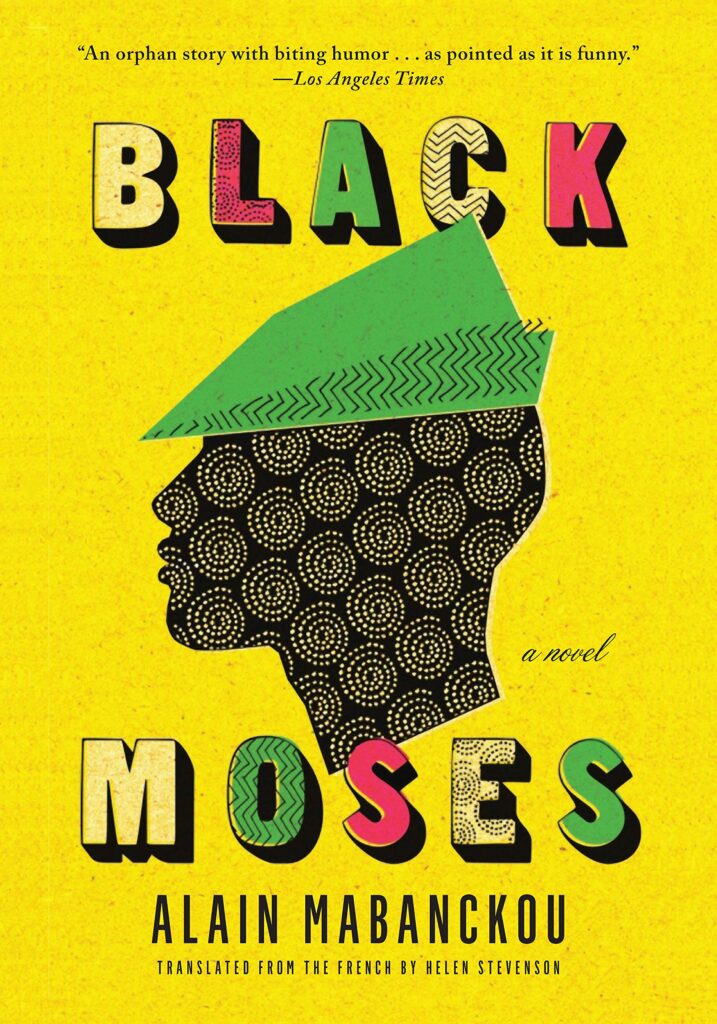Black Moses by Alain Mabanckou
This is a book about an orphan nicknamed ‘Little Pepper’ his real name Tokumisa Nzambe po Mose yamoyindo abotami namboka ya Bakoko meaning ‘Thanks be to God, the black Moses is born on the earth of our ancestors’ being too long for everyday use. Little Pepper lives in an orphanage for the first few years of his life in a place called Loango which is just north of Pointe Noire. Due to a harsh ‘tribalist’, and supposedly socialist, regime in the orphanage that reflects the realities of life beyond the orphanage, Little Pepper and two acquaintances decided to escape the orphanage. Their escape is a success and they find themselves living on the streets of Pointe Noire where they do what they can to survive. Living in the streets of Pointe Noire Little Pepper meets Mama Fiat 500 who is a sex worker and a pimp. She accepts him into her make-shift family, finds him a job and acts like a mother figure to him. Tragedy befalls Little Pepper when Mama Fiat 500 and her girls are evacuated from their home and never to be found again by Little Pepper. This happens in his 19th year of life and we do not meet him in the years in between until he is 40 years old and mentally ill.
It was a shock to me that Little Pepper, who had been gallivanting on the streets of Pointe Noire as a youth and who had many other tragedies befall him before the loss of his chosen family became mentally ill because of this trauma. I think that I was particularly surprised by this precisely because he was a poor character, an orphan and a black child living in an underdeveloped country. By this I mean, that often when we read stories where the main character is faced by so many adversities we expect them to be resilient through it all, for them to have some sort of breakthrough that leads to a happy ending, and most authors indulge us in this. However, Mabanckou does not give us this cliché ending as his novel is critical of a system that forces its people to experience unthinkable traumas. In this book he sends out a clear message that a happy ending is not possible in a system that does not care and provide for those living within it.
Mabanckou is an incredibly skilled writer who manages to bring in layers into his story telling from the personal level, to the public, to the systemic level. A comedian not only in the naming of his characters, his writing on heavy topics is such that you only really fully acknowledge the tragedy of the book once you have laughed through its pages. Moreover, Mabanckou is a master of painting images that become, sometimes frighteningly, vivid in your head like a milliped walking around in someone’s brain or a cat being murdered for a meal by the hands of hungry children.
We would recommend this book to anyone who wishes to know about socialism in Congo, to those who want to see what a failed system can do to its most vulnerable but also to all of you who would like to have a good laugh about some children with fantastical ideas.




